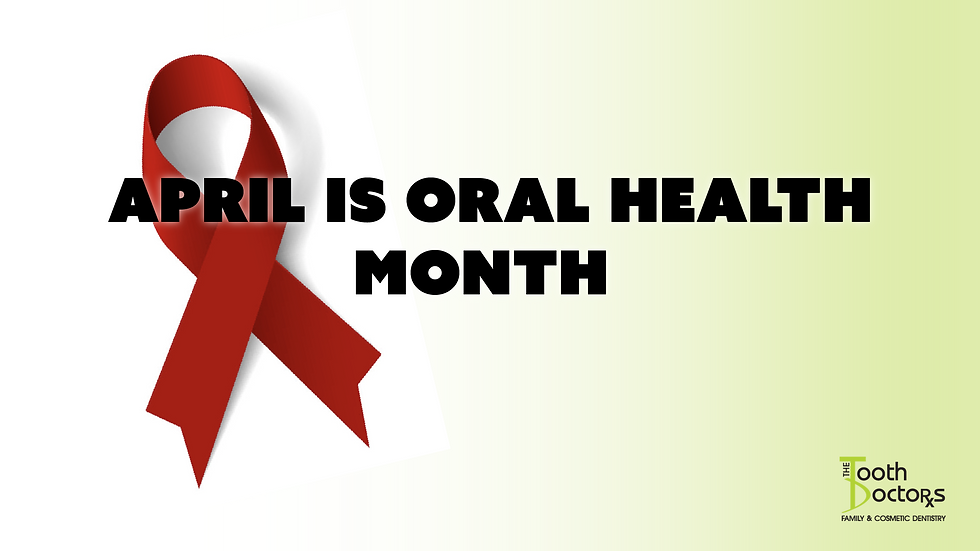What You Need To Know About Teeth Grinding
- The Tooth Doctors

- Aug 27, 2015
- 2 min read
by Stefanie
Do you or someone you know clench or grind your teeth? It is known as bruxism, and in many cases, it can have serious repercussions. Although it can be easy to detect signs of bruxism in the mouth, you should talk to your dentist if you think you are clenching or grinding.

Here’s what you need to know: 1.In most cases bruxism is mild. But, when it’s frequent or severe, Grinding can aggravate your jaw joint (TMJ). This can lead to pain or tightness in the joint area, and even earaches and headaches. Of course, bruxism is bad news for your teeth, too. The habit can wear down your enamel, cause increased tooth sensitivity, and result in chipped or broken teeth. If your teeth are misaligned and your muscles are pulling your jaw into an unnatural position, you may end up grinding your teeth. 2. You may be more likely to grind or clench your teeth if you’re stressed, anxious or frustrated. Drinking caffeine or smoking may be a contributing cause. Teeth grinding is also associated with certain competitive and determined personality types. Athletes are also at an increased risk due to a high stress lifestyle. 3. You may not even know you’re clenching or grinding your teeth. Many of us do it at night, and may not notice until damage to teeth and the TMJ had already occurred. Waking up with unexplained facial/muscular pain or headaches may be an indicator. 4. Children do it more than adults. Children may also grind their teeth when they’re coping with earaches or teething, or it may be related to their jaw and tooth growth and development. Kids who drool at night, talk in their sleep or have a psychological disorder are more likely to grind their teeth. 5. It is treatable. The most common and successful approach to treating bruxism is a nightguard fabricated by your dentist. It is an acrylic material that fits over your teeth to prevent damage to the teeth and relax the jaw at night. Sometimes, making personal changes can help with bruxism. For example, if you are consciously clenching during the day, training yourself to relax your jaw will make significant changes. Some people have found that finding some form of stress relief (i.e. relaxing music, knitting, yoga…) can help reduce symptoms.



Comments